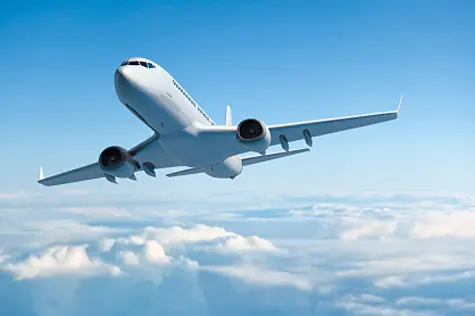PHOTO
Monday, Aug 29, 2016
Abu Dhabi: The potential threat of an aeroplane being hijacked by hackers using Wi-Fi network on-board puts more responsibility on airlines and passengers to ensure safe and secure flights, a senior airline official said on Monday.
“Many planes offer on-board Wi-Fi for their passengers and this poses a risk of hacking the plane itself. In the US, for example, two men did a test from their laboratory on the ground and proved that they could hack on to a passenger’s device through the internet connection,” Dr Jasem Haji Al Jasem, director of IT at Gulf Air, a Bahrain-based airline, said at the National Security Middle East conference in the capital on Monday.
A BBC report last year said the US Federal Bureau of Investigation (FBI) had issued a formal alert telling airlines to be on the lookout for hackers. It followed an on-board tweet from security expert Chris Roberts, who joked about being able to hack into a United Airlines plane’s Wi-Fi network.
A terrorist could theoretically take over systems by compromising on-board equipment. Aircraft, including Boeing 787 Dreamliner and Airbus 350 and A380, have a single network used by both the pilots to fly the plane and by passengers for their Wi-Fi connections, the BBC report said.
Speaking to Gulf News, the Gulf Air official said airlines are employing innovation by offering internet and smart gadgets, which always enhance security and safety risks. The top 100 passenger carriers in the world are spending more than 31 per cent of their IT budget for innovative services in a highly competitive market.
The risks of innovation are applicable to all sectors but aviation deserves special attention, Al Jasem said on the sidelines of the conference. Ninety-seven per cent of passengers carry mobile phones and 87 per cent have smartphones. To use this, top airlines are encouraging use of smartphones [applications etc] from the current 54.7 per cent to 73 per cent, according to a study. Apart from airlines, passengers have to also act responsibly to minimise risks while using applications of airlines for travel purposes.
“You have to be more careful about spam emails and messages on social media used by hackers. Never respond to suspected messages and reveal information,” he warned.
“There are many safety questions people have to answer but, unfortunately, when it comes to aviation security these questions are not answered until a disaster happens. In the case of Malaysia Airlines for example, it was after MH370 went missing that [effective] flight trackers were adopted by the industry. And people were rightly asking why this was not implemented earlier,” he said.
UAE and GCC partners keen on border and cyber security
By Sami Zaatari
The UAE and its partners in the Gulf Cooperation Council (GCC) are always upgrading their technological capabilities to tackle security threats, a senior official said here on Monday.
“We always take keen interest in security matters, especially in cyber security,” said Khalid Al Mansouri, President of International Council, International Association of Emergency Managers in the UAE. “I am very happy and confident in the steps taken by the UAE in terms of addressing the ever-evolving security needs and challenges,” he said at National Security Middle East conference.
Vice Admiral Awad Bin Eid Al Balawi, director-general and Chief, Royal Border Guards, Saudi Arabia, said border security is fundamental to the internal security and stability of any country. Having an integrated system in place helps to tackle all sorts of smuggling, illegal infiltration and terror acts.
Saudi Arabia has an integrated border security strategy that covers all borders. The strategy analyses potential threats, events and risks to border security from terrorist organisations, smugglers and infiltrators.
By Binsal Abdul Kader Senior Reporter by Sami Zaatari Staff Reporter
Gulf News 2016. All rights reserved.





















